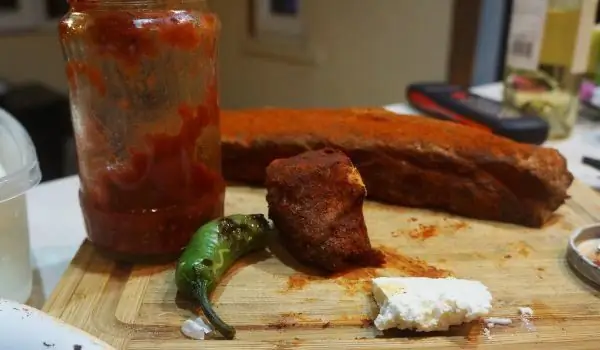2025 Author: Jasmine Walkman | [email protected]. Last modified: 2025-01-23 10:18
There is no kitchen cabinet that does not have a package of uneaten biscuits, old nuts or leftovers from a bottle of vegetable oil. If so, you can be sure that you are a haven for dangerous rancid foods.
What to do with rancid products? There is only one answer - to throw them away. What happens when fats are oxidized has long been a challenge for home cooks, but the health problems we can get when using them are far from insignificant.
So what's wrong with eating rancid food?
There are at least two reasons why we should not consume it. One is that they lose their vitamins, and the other is that they can also develop potentially toxic substances that are associated with aging, neurological diseases, heart disease and cancer.
"They are carcinogenic, pro-inflammatory and highly toxic," say experts. But they are also widespread in the food chain. This is because in the last 10 years, trans fats have been replaced by polyunsaturated fats in most products. Trans fats are very stable and less prone to rancidity, which means we are headed for rancidity. The same is true for highly refined white flours.
But when these flours and fats were replaced with whole-grain flours and grains and polyunsaturated fatty acids, such as corn oil and soybeans, their endurance stability collapsed. Due to this fact, many manufacturers had to change the expiration date on food and start adding more artificial preservatives to their products.
In fact, while people follow the recommendations to replace saturated and trans fats with polyunsaturated (vegetable) and monounsaturated (olive, canola and peanut oil) fats, they do not realize that these healthy fats do not last that long.
It turns out that without questioning their health benefits, people should be careful about the use of polyunsaturated fatty acids, such as storing products that contain them in a cool, dark place or simply digging for smaller cuts of them to to be able to consume them faster.
Air, light and heat lead to rapid oxidation, so it is usually a bad idea, for example, to buy vegetable oil in a clear bottle and place it on the counter in a warm kitchen for several months.
Exotic oils (macadamia nuts, walnuts, sesame seeds, fish, flaxseed, etc.), nuts and whole grain flours are also among the main candidates for fast rancidity and all of them should be stored in the refrigerator or freezer.
If you still have a rancid product in your kitchen, then the best thing you can do is throw it away, because it can really be harmful to your health.
Recommended:
List Of Protected Products Of The European Commission

There are three types of products with a special regulatory regime by the European Commission. These are the protected names of foods according to their origin, products authorized for production only in certain territories and foods of a traditionally specific nature.
Superfoods Among The Traditional Bulgarian Products

Modern superfoods are always more expensive and generally most people cannot afford them. On the other hand, in our kitchen and in our latitudes there are products that also have excellent health properties and that we can buy at far more affordable prices.
Products For Good Digestion

Dried cherries are one of the best friends of good digestion . They are also used in the prevention of heart disease as well as vascular disease. Dried cherries contain organic acids, pectic substances, iron, copper, cobalt, magnesium, vitamins A, C, PP, B vitamins.
Frozen Products

When freezing fresh vegetables, they should be washed, cleaned and pre-blanched in hot water or lightly steamed. This is done to deactivate the enzymes that can change vegetables - to make them tougher and to change their color and taste.
How To Defrost Different Products

There is a lot of detailed information on how to freeze products from a freezer or chamber. Yet hosts are never fully aware of one of the last stages of food storage - thawing. There are several options for defrosting the products depending on their further use:

